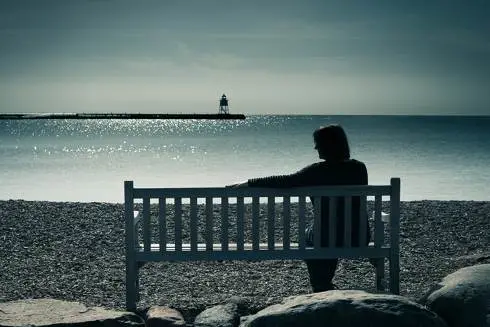- Understand that most debts are not forgiven when the debtor dies.
- Examine how living in a community property state affects your liability for debt.
- Look into all options for resolving debt, if you are stuck with the responsibility to pay it.
Am I legally responsible for my deceased spouse's medical bills?
Am I legally responsible for medical and dental bills incurred by my spouse prior to death? I am the primary on the medical insurance. I was the only one working at the time, my spouse was on disability.
If you signed an admission form that included guarantor language when your spouse received the medical services, then you promised to pay for your spouse’s debt if your spouse does not. Consult with an attorney in the state where you reside who has experience in consumer law. Show the attorney all papers related to your spouse’s hospitalization. In particular, you mentioned that you paid for your spouse’s medical insurance, which does not necessarily mean you are the guarantor of your spouse’s medical bills.
A lawyer will advise you of your rights and liabilities based on your state laws and the documents you signed before and during your spouse’s medical procedures. I realize my answer does not provide the information you seek, but it is impossible for me to even guess what your liabilities are without knowing more information.
Let us assume for the sake of argument that you are not the guarantor of your spouse’s medical bills. (Again, I am not saying you do or do not have a contractual responsibility to pay the debt — I do not know that answer based on the information provided.) Does a spouse have common law or statutory liability for a deceased spouse’s debts?
Compare Options to Pay Off Debt
The Bills.com Debt Pay Off Calculator offers no-nonsense information about your debt relief options, and will give you the pros, cons, and costs for each.
Deceased Spouse’s Debt
Some people assume a decedent’s debt is forgiven or possibly written off by creditors. The law does not work that way, with the exception of federal student loans. However, spouses or other relatives are not responsible for the decedent’s debt automatically, either. Many collection agents take advantage of a debtor’s grief and ignorance of the law to imply the family must pay the decedent’s debt, but that may not be the case.
When a person dies with a will, the will controls the financial affairs of the decedent’s assets, which is called the “estate.” A will distributes assets, not debts. However, before any assets can be distributed to the heirs, all known debts must be paid by the executor. Therefore, the executor will sell assets in the estate to pay for any debts that remain. Only after the debts are paid will the remaining assets be distributed among the beneficiaries of the will.
If a person dies without a will, this is known as “dying intestate” in lawyer-speak. In this situation, the court appoints an administrator to handle the distribution of the decedent’s assets according to the laws of the state. As with dying with a will, assets are distributed after debts are paid.
Here is a key point: If the estate is insolvent the creditor has no legal right to collect the debt from family members, children, or friends. There is no feudal debt bondage that ensnares an entire family, at least not in the US. In most states, the creditor cannot collect from the spouse either. However, in community property states, the question becomes more complicated.
Your State's Probate Laws
Learn more about your state’s probate laws to understand your rights and liabilities as the spouse of a recently deceased person.
| Community Property States |
|---|
| Alaska* |
| Arizona |
| California |
| Idaho |
| Louisiana |
| Nevada |
| New Mexico |
| Texas |
| Washington |
| Wisconsin |
| * Optional |
Source: Bills.com
Deceased Spouse’s Debt in Community Property States
Generally in community property states, debt incurred by a spouse for the benefit of the family is considered a "community" debt, and therefore the spouse is responsible for repaying that debt.
Does medical debt benefit the community? At first glance, no it does not. However, no two community property states use exactly the same laws. You may or may not have liability for your deceased spouse’s debt based on your state’s community property laws. But you cannot stop your analysis here regardless of which state you live in..
Doctrine of Necessaries
Many, but not all states have a “doctrine of necessaries” rule. The doctrine on necessaries rule requires spouses to pay for each other’s necessities of life. The doctrine also applies to parents of minor children.
If your state has a doctrine of necessaries rule for spousal debt, you may have liability for your spouse’s medical debt, even if you were completely unaware of the expense. See the Bills.com article Doctrine of Necessaries Rules For Each State to learn the rules for your state.
Resolving a Deceased Spouse’s Bills
Do not assume you have liability for your deceased spouse’s debt. If have a deceased spouse’s medical debt issue, consult with an lawyer in your state to understand your rights and liabilities in your particular circumstances.
Medical bills are unsecured debt, which is like credit card debt, a deficiency balance, or a payday loan. See How to Resolve Medical Debt to learn how to pay your spouse’s medical debt, if you are indeed contractually or statutorily responsible for your spouse’s medical bills.
For additional information, see the Federal Trade Commission documents Paying the Debts of a Deceased Relative: Who Is Responsible? and FTC Issues Final Policy Statement on Collecting Debts of the Deceased.
I hope this information helps you Find. Learn & Save.
Best,
Bill
Recommended Reads
10 Comments
I was struggling with debt from my husband's medical bills that were run up in the last 7 months of his life. I almost paid a fee to Regency Finance Company. They claimed to offer any form of loan to individuals at a low interest rate of 3%. Mrs Karen Baker was the contact person. What a scam!!! Don't fall for this kind of pitch. Too good to be true.
If you discovered a bank account with $100 in it, it is likely that this would be considered de minimis, so small that it is of no concern. On the other hand, if you discovered a shoebox full of valuable stock certificates, you should contact an attorney to find out how to revisit the probate case.
You can't be sued for your father's debts. You are not responsible for the debts he left behind. Your only risk would be if you took possession of an asset that was later determined to have been improperly taken, when it should have gone to satisfy someone else. In that case, you could be required to disgorge the asset. I think the best course of action you can take is to speak with an attorney that specializes in estate law.
SOL questions can be tricky. In general, utility bills fall under the SOL for written contracts. If you need to know the SOL for your utlity bills, you are best off consulting with an attorney in your area.









I have a friend, his father passed away no will no estate. Is he liable for auto pays going to his checking account, or the fees the bank is adding onto the father's account?
Judith, I am not a lawyer, so the information I share is not to be taken as legal advice.
It is my opinion that unless he is a joint account holder, he is not liable. Did anyone let the bank know that the accountholder died?